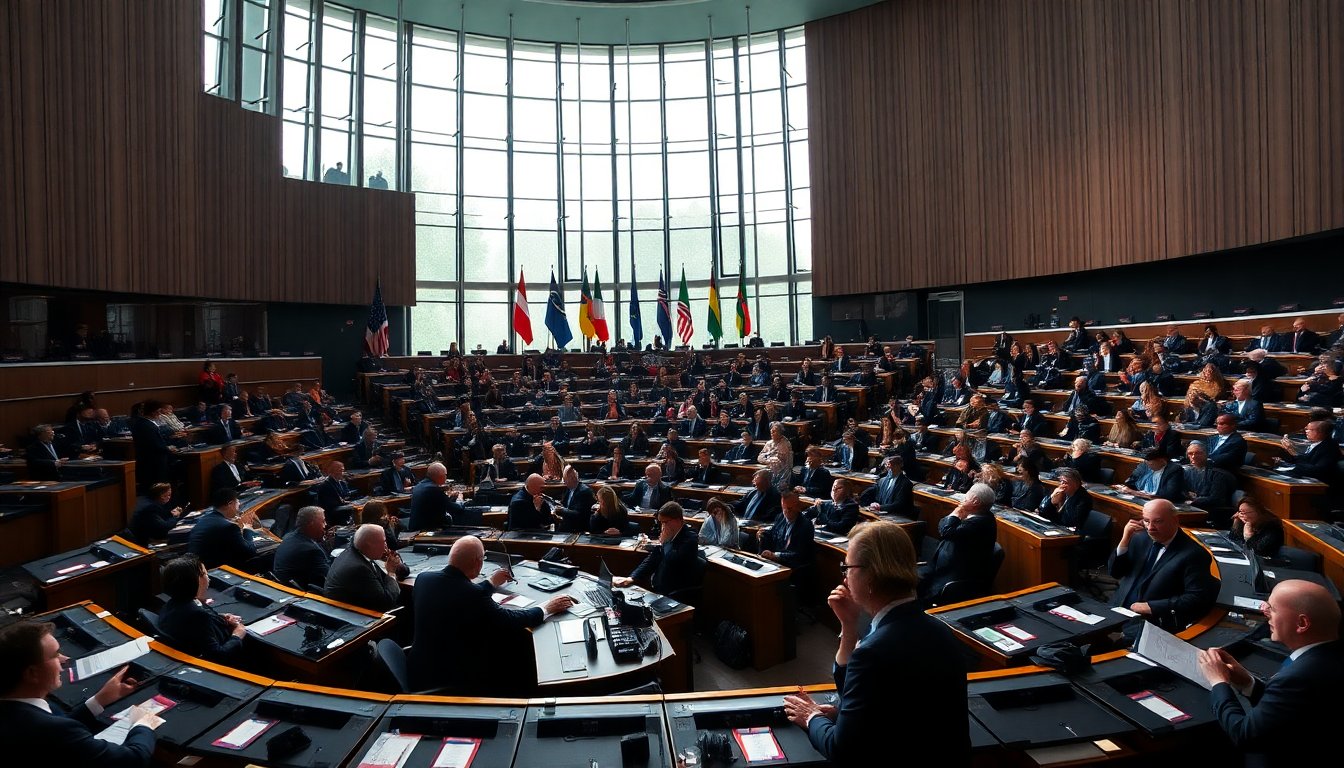Table of Contents
In a pivotal moment for her leadership, Ursula von der Leyen, the president of the European Commission, successfully navigated two significant no confidence votes in the European Parliament. These votes revealed underlying discontent regarding her policies and calls for greater transparency. Despite the challenges, von der Leyen emerged with her position intact, emphasizing the importance of collaboration with the parliament to address pressing issues facing Europe.
The motion for censure was initiated by both the left and far-right factions within the parliament. Each group expressed dissatisfaction with von der Leyen’s approach, particularly criticizing her trade policies and perceived opacity in decision-making processes. Ultimately, the attempts to unseat her failed to gain the necessary support, indicating resilient backing from the majority of lawmakers.
Details of the confidence votes
Both motions aimed at undermining von der Leyen’s leadership fell short of the required 361 votes out of a total of 720. The challenge spearheaded by the far-right Patriots garnered the support of 179 lawmakers, while the left-wing initiative attracted 133 votes. These numbers highlighted that a majority of parliament members favored von der Leyen’s continued leadership.
Reactions to the votes
In light of the vote outcomes, von der Leyen expressed her gratitude for the overwhelming support she received from the assembly. She stated, “I deeply appreciate the strong support received today,” underscoring her commitment to working closely with the parliament. Her response suggested a focus on unity and collaboration, particularly in addressing critical challenges facing the European Union.
Implications for von der Leyen’s leadership
The confidence votes signal an important juncture for von der Leyen, reflecting growing discontent within certain political factions. Criticisms from both ends of the political spectrum—left and right—point to a fractured landscape within the European Parliament. This division raises questions about the cohesion of the coalition that von der Leyen leads, primarily composed of the conservative European People’s Party (EPP).
While the failed motions may reinforce her position for now, they also serve as a reminder that her leadership will continue to be scrutinized. As she navigates the complexities of coalition governance, the European Commission president must address concerns that have led to such challenges, particularly regarding her policies and governance style.
A path forward
Von der Leyen’s commitment to continuing dialogue with the parliament is crucial as she seeks to mend any rifts and foster collaboration. As she stated, her administration aims to work “closely with the European Parliament to tackle Europe’s challenges.” This proactive approach could potentially quell dissent and reinforce her position, allowing her to implement her agenda more effectively.
The recent confidence votes represent a significant test for Ursula von der Leyen, highlighting the complexities of leading in a politically diverse context. The challenges she faces reflect broader issues within the European Union, emphasizing the need for transparent governance and effective communication. As von der Leyen moves forward, her ability to engage with both critics and supporters will be essential in shaping the future of her leadership and the policies of the European Commission.


